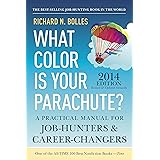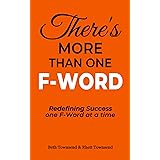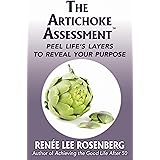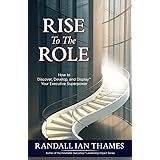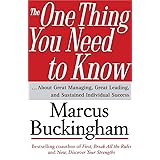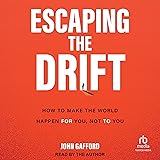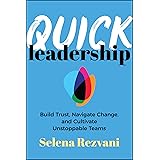Many individuals find themselves caught in a frustrating loop: they seek a fulfilling career, yet everything they attempt feels mundane or unsatisfying. This pervasive issue often stems from a narrow definition of what a career should be, leading to feelings of being stuck in unrewarding jobs that drain their energy and enthusiasm. However, a profound shift in perspective can illuminate a clearer path forward, allowing you to discover a professional journey that genuinely aligns with your deepest interests and values.
The accompanying video skillfully tackles this common dilemma, advocating for a revolutionary approach to finding a career you truly care about. It challenges conventional wisdom by suggesting that instead of fitting your passions into pre-existing job boxes, you should first identify what truly excites you, then strategically build a career around those core interests. This article will delve deeper into these transformative ideas, providing actionable insights to help you navigate your own career exploration and discover meaningful work.
Beyond the Traditional: Redefining Your Career Search
A significant problem arises when individuals default to predefined career paths without truly evaluating their personal interests. Society often dictates what constitutes a “successful” or “sensible” career, influencing our choices from a young age. This conformity can lead to a state of perpetual dissatisfaction, as highlighted by the common experience of switching majors multiple times or enduring soul-crushing roles. We frequently choose paths simply because they are visible or readily available, a cognitive bias known as the availability heuristic, rather than exploring a broader spectrum of possibilities.
The Pitfalls of “Monkey See, Monkey Do” Mentality
Our inherent tendency to imitate others significantly impacts career decisions. Imagine a young person whose family and peers primarily pursue stable, traditional professions like medicine or law. They might instinctively gravitate towards these fields, enrolling in pre-med or law programs, not from genuine passion, but because “that’s just what people did.” This “monkey see, monkey do” approach, while socially comforting, often overlooks unique talents and deeply buried personal desires. It can lead to years of study or work in an area that feels devoid of purpose or personal connection, ultimately resulting in burnout and discontent.
For instance, a friend of mine, influenced by their family’s lineage of accountants, pursued an accounting degree despite a strong creative inclination. They excelled academically, yet felt a profound sense of emptiness, spending evenings painting and writing short stories. This common narrative illustrates how external pressures can divert us from our authentic paths. Actively resisting this societal programming requires courage and a commitment to self-reflection, breaking free from the gravitational pull of conventional expectations to pursue a more personally enriching path.
Adopting a “Differential Diagnosis” for Your Life Path
Instead of narrowly focusing on finding a “career,” a more expansive approach involves constructing a “differential diagnosis” for how you could spend your time. This method, borrowed from medicine, encourages you to consider all possible options before committing to one, rather than settling for the first or most obvious choice. It involves stepping back from the immediate pressure of job titles and instead asking, “What are all the ways I could potentially engage with the world and earn a living?” This broad inquiry prevents “premature closure,” a mental shortcut where we too quickly dismiss options based on initial assumptions.
Consider the case of a person stuck in a low-paying, stressful call center job, who might only see other call center or food service roles as viable options. By applying a differential diagnosis, they could expand their thinking to include less conventional but potentially more fulfilling avenues. Perhaps they enjoy organizing events, writing, or teaching a specific skill; each of these could evolve into a legitimate income stream. This method empowers you to uncover opportunities that your conditioned mind might otherwise overlook, broadening your horizons beyond the immediate and familiar.
Unlocking Your Passions: What Truly Motivates You?
The journey to a fulfilling career begins not with scanning job boards, but with deep introspection into what truly engages and excites you. This process means temporarily setting aside the question of how to get compensated and focusing purely on genuine interest. What activities make you lose track of time? What problems in the world do you feel a strong desire to impact? These questions act as a compass, guiding you toward areas where your inherent curiosity and drive naturally reside.
Questioning “Premature Closure” in Career Choices
When exploring your interests, your mind may quickly jump to “premature closure,” dismissing ideas before fully investigating them. For example, if you realize you are passionate about equal rights, your immediate thought might be, “I have no qualifications for that, so it’s not an option.” This knee-jerk reaction effectively shuts down exploration before it even begins, limiting your potential. True exploration means acknowledging an interest, then moving to an investigative phase, researching how others have turned similar passions into viable livelihoods, regardless of current qualifications.
Imagine discovering a deep love for ancient history, only to tell yourself, “Historians don’t make money, so that’s out.” This premature closure prevents you from exploring avenues like historical consulting for films, creating educational content, or even developing historical video games. Often, the very reasons your mind offers for dismissing an interest—”no qualifications,” “not a stable career”—are precisely the challenges you need to systematically address. Identifying these mental barriers is crucial because they reveal the next steps in your personal and professional development.
The Power of Competing Interests in Your Professional Life
Engaging in difficult or less enjoyable tasks becomes significantly more tolerable and even manageable when you have a strong “competing interest.” This psychological principle suggests that a deeply cherished goal or passion can override the discomfort associated with necessary obstacles. The video provides a compelling example with a patient who quit smoking only after connecting it to his desire to walk his daughter down the aisle without an oxygen tank. This future vision served as a powerful competing interest, motivating him to overcome a strong biological addiction.
Applying this to your professional journey, imagine you aspire to work in environmental conservation, a field you are truly passionate about. Achieving this goal might require studying complex statistics, writing tedious grant proposals, or undertaking challenging fieldwork—tasks you might not inherently enjoy. However, your profound desire to fight climate change or protect endangered species becomes the competing interest that makes these arduous steps bearable. This clear purpose transforms mundane tasks into stepping stones toward a meaningful impact, infusing otherwise unappealing work with newfound purpose and drive.
Transforming Passions into a Fulfilling Career Path
Once you identify your core interests, the next crucial step involves a systematic investigation into how these passions can translate into a source of income. This doesn’t mean immediately landing your dream job; instead, it means creatively exploring opportunities and being open to unconventional paths. The world offers far more ways to earn a living than traditional career counselors often present, especially in an evolving digital economy. Look for niche demands and opportunities where your unique skills and enthusiasms can flourish, creating a truly fulfilling career.
Embracing Unconventional Career Paths
The concept of “professional DMs” (Dungeon Masters for role-playing games) exemplifies how niche passions can become legitimate careers. As mentioned in the video, individuals in New York City pay $400 a week for a curated Dungeons & Dragons experience, with groups of five players each contributing $80. This highlights a demand for highly skilled, passionate individuals in areas previously considered mere hobbies. Other examples could include specialized content creation, coaching for unique skills, or offering bespoke services that cater to specific, underserved communities.
The key here is to observe societal needs and personal interests that intersect in unexpected ways. Perhaps you love organizing chaotic spaces and could become a professional organizer for hoarders or digital data. Maybe your passion for vintage electronics could lead to a repair and restoration business. By shedding the restrictive definition of “career,” you open yourself to a world of possibilities where your quirks and deep interests can genuinely create value for others, thereby securing a livable wage and deep job satisfaction.
Overcoming Barriers: What to Do When Interest Fades
It is perfectly normal for interest to wane, or even feel completely lost, especially during periods of stress, illness, or mental health challenges. The video notes that interest isn’t truly “lost” but often “buried” beneath various physical and psychological factors. If you find yourself in this state, it is important to address the underlying causes before expecting your passions to spontaneously re-emerge. This process requires patience and a commitment to self-care, acknowledging that well-being directly impacts motivation and engagement with life.
Begin by taking stock of your physical health: are you getting enough sleep, nourishing your body with healthy food, and engaging in regular physical activity? Simple actions like yoga, meditation, or seeking professional medical advice for vitamin deficiencies can significantly restore motivation and clarity. Moreover, reflecting on *when* and *why* your interest started to fade can provide valuable clues. Was it due to academic pressure, negative feedback, or a traumatic experience? Uncovering these roots helps you address them directly, allowing your buried passions to resurface and guiding you back toward finding a career that genuinely excites and sustains you.


